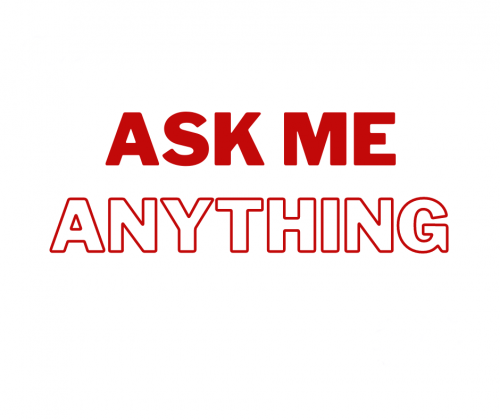Ask Me Anything

Blog by James Hayden
Following are the results of an “Ask Me Anything” exchange hosted by James Hayden on his Facebook Account earlier this month in observance of National Stuttering Awareness Week.
1. What is the biggest misconception people have about stuttering, in your experience?
The typical misconceptions are that I’m nervous or lying during a stuttering moment. I’ve been accused of those numerous times over numerous stuttering moments. However, the biggest misconception is people assuming I don’t know what I’m talking about when I stutter. I’m knowledgeable about a lot of topics. Sometimes I stutter while explaining those topics and as a result people think I’m dumb and/or not knowledgeable about the topic.
2. What one piece of advice would you give your younger self?
I would tell my 10-year-old self, “You always were, already are, and always will be so much more than your stutter.”
I would tell my 20-year-old self, “Get over yourself. Going back to speech therapy is a good thing.”
I would tell both my 10- and 20-year-old selves, “It’s ok to stutter.”
3. Were you ever picked on as a child because you stutter and how did you respond?
Yes. I vividly remember a time in third grade and a time in fourth grade when I was picked on. There could have been other times where I was picked on behind my back, but these are the two I know about.
When these two events occurred, my initial response was to cry and tell the teacher. That’s because I didn’t have the emotional maturity or tools to properly advocate for myself or my stutter.
As an adult, I still occasionally get picked on because of my stutter. My response is to call the person out in a stern, yet graceful way. I tell them, “I’m a person who stutters.” I then go on to explain to them how they can be and do better the next time they encounter a person who stutters.
4. How often do you think about your stutter?
If I’m being honest, I still think about my stutter. However, it’s not as much as I did a few years ago. The main times I think about it are when I get “the look [1]” from someone unexpected and when I have something to say in a fast-paced conversation with a group of people. If I know I’m going to stutter, I wonder if I should keep the thought to myself or say it. In those cases, I know the conversation will have changed topics at least 3 times by the time I say what I want to say. However, my voice is still worth being heard.
I don’t give much thought to my daily stuttering moments. I have more important things to worry about.
5. What were YOUR biggest misconceptions about stuttering?
Growing up, I didn’t have anyone in my life who stuttered. As a result, I thought I was the only person in the world who stutters. The older I got, the more I realized this wasn’t true, but still I had no one in my life who stuttered. When I entered my late teens and early 20s, two questions still lingered. The first was “What will I be able to accomplish?” The second was “Will people be able to see past my stutter?”
Now that I’m 30, I can confidently say that those questions no longer exist. I have accomplished so many things that I never dreamed possible. Sometimes stuttering was involved and sometimes it wasn’t. Regardless, I did the damn thing.
Something I didn’t realize then was that stuttering was a great gatekeeper for who I let into my life. If taking a few seconds to say my name or order food is going to be a deal breaker, then they aren’t people I want in my life. The people in my life see me for me and don’t care about the fact that I stutter (as it should be).
Posted May 12, 2023